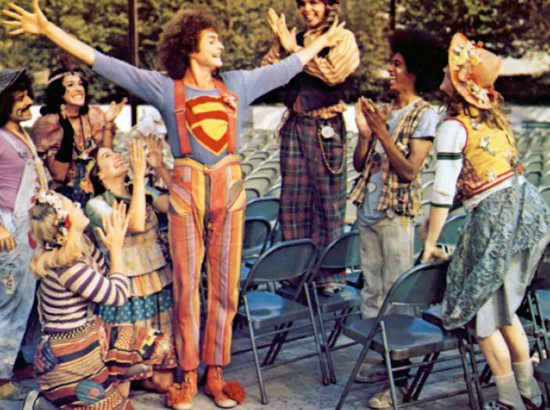• Rabbi Danya Ruttenberg has finished up her three-post series on Jesus and the (other) Pharisees. It’s really quite good:
Ruttenberg notes that none of what she’s discussing here is novel or original , nor is it anything like a scholarly consensus. The general idea here — that Jesus was associated with the Beit Hillel faction of the Pharisees — isn’t some fringe theory. It’s a respected, supportable argument. I find it persuasive, if not conclusively certain.

But being conclusively certain is not the point of this series. Rabbi Ruttenberg is just inviting us to think more about Jesus in the context of the first-century Pharisees he was always hanging around with. The Gospels were written later and bring various additional agenda items to the story, but one thing they all certainly agree on is that Jesus was constantly in dialogue with “the Pharisees.” And who was it that the Pharisees spent most of their time dialoguing and arguing and debating with? Other Pharisees.
As Ruttenberg write in the final post in the series:
Understanding how the Jews and Judaism may be situated in the Gospels should matter to Jews, and it should matter to Christians, and doing this kind of textual detective work is a great case study for anybody of any kind of background, I gander– in how assumptions can change with new information and context, to say nothing about better understanding one of the major religions trying to pull a theocracy these days.
If, indeed, Jesus is (mostly) Beit Hillel (potentially among other identities or relationships, or not, or whatever) and the Pharisees portrayed in the Gospels are Beit Shammai– so the Gospel stories are really about Jesus and the Pharisees having reasonable conversations about in-group matters, this impacts what the text is, says, means. It changes the very substance of what those conversations were.
This is also excellent advice for anyone reading and hoping to understand the Gospels:
All it takes is the willingness to look — and a refusal to assume that we know the plain meaning of a text simply by reading it — particularly one so removed from our own time and place. “What do I know?” “What don’t I know here?” “What assumptions am I making?” Are never bad questions to ask when engaging any text of any kind, of any medium.
It’s quite possible now that you’re reluctant to click over and read this series because you worry it’s just going to be a lot of dry bib-studies stuff and it’s possible that you’re thinking that because I haven’t yet done a good enough job conveying how fun and funny this series is or how witty and engaging and surprising Ruttenberg can be. My bad. These posts are not aridly educational, they’re downright entertaining. Go have yourself a good time and read the whole series.
• And now, a good word from David Dark.
There are many words at that link, actually, and many of them are good and/or are placed together in good ways. But I’m literally linking there to highlight just one word: “situatedness.”
This is a good word.
• I haven’t watched any of the DNC convention live because I work nights and those trucks won’t unload themselves, but I did catch the ceremonial roll call of the state and territorial delegations, which was endearing and contagiously enthusiastic. The highlight for me was state Rep. Justin Pearson of Tennessee puh-reaching:
• Another clip I’m going to have to watch is the video introduction and speech by potentially America’s first first gentleman, Doug Emhoff. Mother Jones’ Clara Jeffery write about why this speech was groundbreaking, and why it matters so much for families like mine:
What jumped out to me about Emhoff’s speech on the second night of the DNC was something he shares in common with far more Americans: He’s part of a blended family. And never before has that status — one shared by 40% of married couples who have kids in the household, and many others as well — been celebrated (or even passingly mentioned) on the stage of a national political convention.
When Doug walked to the podium, he began by pointing up into the stands saying, “Hello to my big, beautiful, blended family up there. I love you so much.”
That 40% figure was surprising to me. I suppose that’s just from experience — from being used to having others seem confused or surprised when they encounter my own blended family or hear me talk about holiday gatherings or vacations where we all gather and get along. Our family isn’t unprecedented or rare or even unusual, and it’s kind of nice to see people like us up there pointing that out.

(If you can’t read that, it’s a tweet from Ben Wexler saying “Kamala’s husband’s ex-wife is supporting her more enthusiastically than Trump’s current wife is supporting him.” And it’s retweeted by Kerstin Emhoff, who says, “Damn right.” Family is family.)
• Eels, people. Eels. What the heck is up with eels?
“All Eels in America and Europe Come From the Bermuda Triangle” looks at some of the amazing things we’ve learned about these slippery creatures — and at some of the very basic things we still haven’t managed to learn. That article both starts and ends with lists of “fascinating facts about eels” that seem like a game of “Two truths and a lie.”
• The Onion has now put its historical archives (“Our Dumb Century“) online. This will be an invaluable resource for future historians. Or, you know, it would be if online archives didn’t all seem to dissolve into nothing after about a decade.
• The title for this post, yet again, comes from the Waterboys’ song “Whole of the Moon,” covered here by Fiona Apple.
















